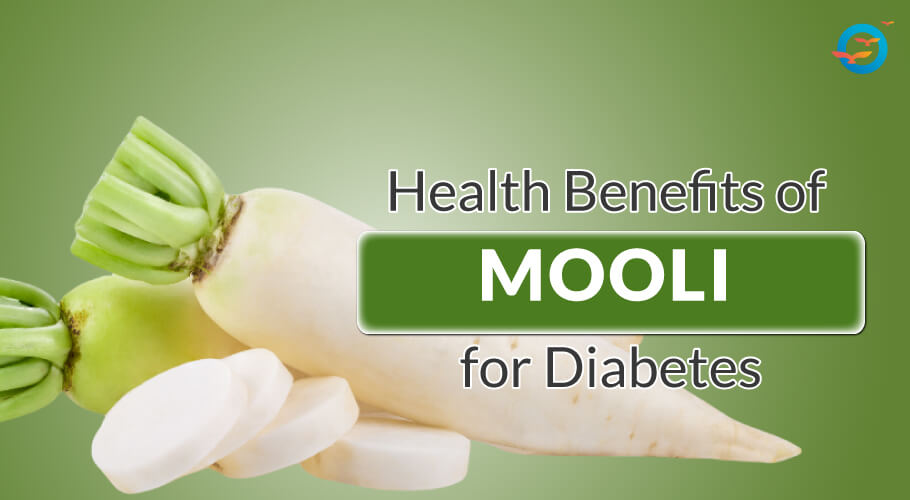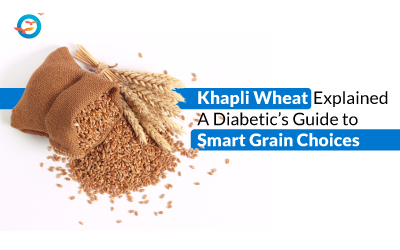Health benefits of radish(Mooli)

Mooli Benefits for Type 2 Diabetes
A root vegetable that comes in a variety of colours—white and pink being the most prominent—the radish, or muli or mooli, as it is known in India, has been cultivated and consumed in Asia since centuries. It's distinctive peppery, pungent flavor makes it a popular ingredient in salads, and soups. It can be enjoyed raw, pickled, or eaten as a vegetable.
Mooli-ki-sabji, is a flavorful and regular dish on dinner tables across the Indian subcontinent. But the radish does more than just tickle your tastebuds, in addition to its unique flavor it is also very high in nutrient content, ranking high among all the vegetables. Eat it raw or add to your healthy vegetable recipe to get numerous health benefits as listed below.
Health Benefits of Mooli
Here are ten of the most prominent health benefits radish/mooli has to offer.
1. Reduces Risk of Cancer
Radishes—regardless of color—contain a high level of phytochemicals and anthocyanins. These are prized for their anti-carcinogenic properties. In addition, Vitamin C in radish acts as a powerful antioxidant to prevent free radical damage to the DNA inside the cells, thus helping reduce the risks associated with some cancers.
2. Stabilizes BP
Potassium in the radish give it anti-hypertensive properties that enable it to control high blood pressure. Potassium is necessary for the body to regulate the sodium-potassium balance in the body. This is necessary for normal BP to be maintained.
3. Provides anti-diabetic nutrition
With a rating of 32, the radish’s GI ranking falls in the low category. It is also high in fiber. These qualities make it the ideal food for diabetics, as the low GI means slow blood sugar absorption and the high fiber further slows this down. Radishes are also low in carbs—a single serving of about half a cup, contains just 2 grams of carbs! Another anti-diabetic property that radishes possess is their high water content. This keeps the body hydrated—a critical aspect for diabetics.
4. Beats coughs and colds
The radish’s anti-congestive properties help in thinning and clearing out heavy mucus which forms in the throat, due to cold virus infections. It is high in Vitamin C—an anti-oxidant and immunity booster. Furthermore, radishes protect the lining in the respiratory system from infection and fight respiratory-related allergies. Radishes thus keep infections that lead to cold and cough at bay, which makes it beneficial for asthmatic patients.
5. Detoxes the liver
Eating radish regularly helps flush out toxins from the liver. It regulates the amount of bilirubin in the blood and increases the oxygen supply within the body, which reduces the destruction of red blood cells caused by jaundice.
6. Eliminates constipation
Radish has a high fiber content. This roughage helps improve your digestive system and keep your colon clear, avoiding constipation. Additionally, it helps facilitate the secretion of digestive juices and bile, which improves function of digestive system.
7. Aids in weight loss
Radish is very low in calories, and the fiber content in it promotes satiety. With barely two grams per half-cup serving, it makes great weight-loss food.
8. Keeps skin youthful
Consuming radish regularly avoids damage from free radicals, as it contains a high level of Vitamin C, flavonoids, and antioxidants. It can be eaten or crushed and applied topically to the skin to keep it supply and give it a deep and naturally glowing look.
9. Improves kidney health
Radish is a natural diuretic. This property of radishes makes them extremely beneficial for improving kidney health. They help elimination of toxins from the body, acting as a natural cleanser.
10. Improves immunity
Radishes come loaded with vitamins and minerals, including Calcium, Vitamin C, Riboflavin, Thiamine, Vitamin B6, Folate, Potassium, Iron and Manganese. It is a powerful anti-oxidant, and is rich in digestion-improving fiber that enable a healthy gut biome where friendly bacteria can flourish. All these properties make it a very strong immunity booster.
Caution:
While radish is a healthy vegetable, and good to add to your diet, one should not overdo it, as overconsumption can interfere with hormone production in your thyroid if you have an iodine deficiency. But it is eminently safe to eat in moderation.
Read more about Capsicum for diabetes, visit our blog.
FAQs:
Can I eat radish every day if i have diabetes?
Yes! Radish has a low glycemic index of 32 and is high in fiber, making it ideal for diabetics as it helps slow blood sugar absorption. Just remember to eat in moderation.
Is radish good for diabetes?
Radish is a Low GI healthy vegetable and a good choice for a diabetic diet, but be careful and avoid overeating it. It's perfectly safe when enjoyed in moderation.
How many Radishes Can I Eat a Day?
Radishes come loaded with vitamins and minerals, including Calcium, Vitamin C, Riboflavin, Thiamine, Vitamin B6, Folate, Potassium, Iron and Manganese. So Diabetics can eat 60 to 70 grams of radish.
Is radish good for health?

